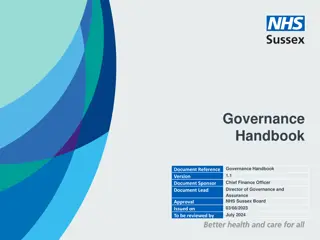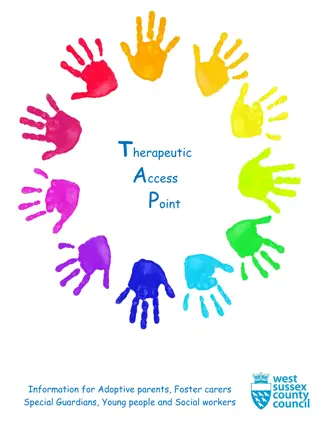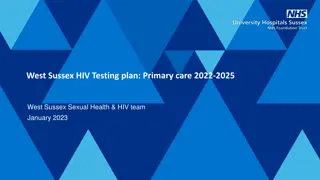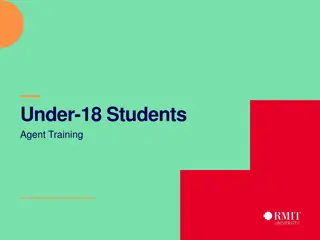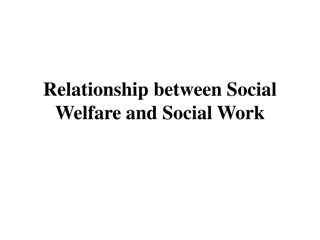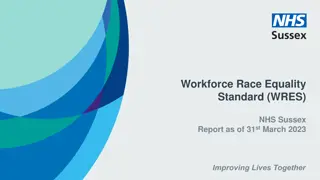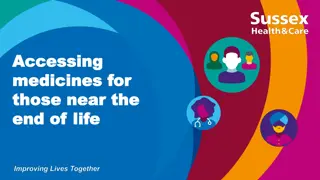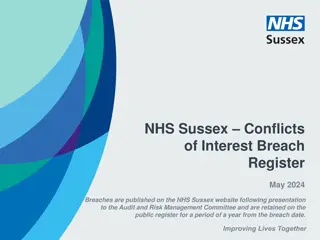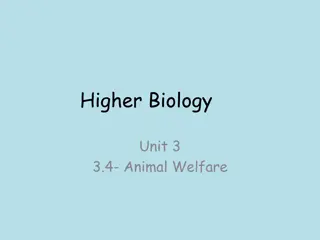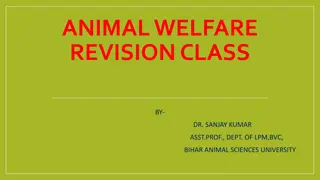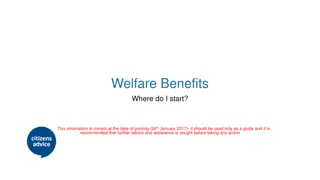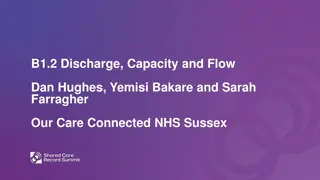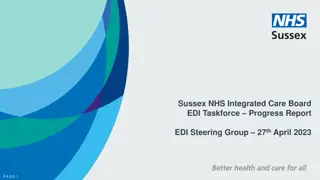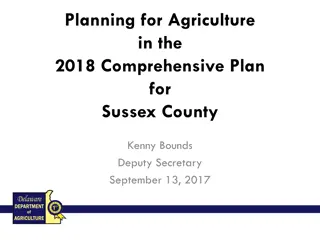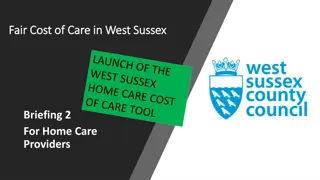Welfare Benefits for Children with Special Educational Needs in West Sussex
Explore the welfare benefits available for children with SEN in West Sussex, including the relationship between EHCP and benefits, application procedures, sources of help, and details on Disability Living Allowance and Personal Independence Payment. Learn about EHCPs, support organizations, and how to access assistance for children with additional needs.
Download Presentation

Please find below an Image/Link to download the presentation.
The content on the website is provided AS IS for your information and personal use only. It may not be sold, licensed, or shared on other websites without obtaining consent from the author. Download presentation by click this link. If you encounter any issues during the download, it is possible that the publisher has removed the file from their server.
E N D
Presentation Transcript
Citizens Advice in West Sussex (North South East) Welfare Benefits for Children with SEN Sajal Siddiqui Service Delivery Manager
Objectives Objectives To better understand Benefits available for children and young people; Relationship between EHCP and benefits; How to apply for benefits; Where to go for help; What passported benefits are
My child has SEN; what My child has SEN; what about school? about school? A child of school age, with special educational needs / additional needs will likely have a EHCP An Educational Health Care Plan is a document that sets out the child s needs and appropriate support provision required at school for them to achieve their potential Many children with an EHCP receive education at mainstream school EHCPs are produced and maintained by West Sussex County Council. If you think your child has additional needs and might benefit from an EHCP contact the SEND team: https://www.westsussex.gov.uk/education-children- and-families/special-educational-needs-and-disability- send/
What help can I get with What help can I get with my child s EHCP? my child s EHCP? There are many organisations who can provide support with EHCPs The first port of call is WSCC SEND Team Local advice for parents / carers with children with SEN is also available via SENDIAS: https://westsussexsendias.org/ Nationally, IPSEA has many useful resources and a helpline https://www.ipsea.org.uk/ There are lots of support organisations available, some of which charge for support and some, like those above, provide free advice
Can my child receive Can my child receive benefits? benefits? Yes! Children and young people with SEN and / or disability or long term health condition are potentially eligible for benefits As their parent / carer you can apply for them For children under 16 the relevant benefit is Disability Living Allowance (DLA) and for those over 16 it is Personal Independence Payment (PIP) Both benefits have a lengthy application process and require lengthy forms to be completed A child in receipt of DLA/PIP may result in a higher award for any benefits you, as a parent/carer, might be on
What is DLA? What is DLA? Disability Living Allowance is for children with SEN aged 0-16. A formal diagnosis is not required to apply, but it is useful There are 2 parts: Care Component and Mobility Component The Care Component looks at all aspects of a child s care needs including feeding, toileting and showering etc. You need to demonstrate the care you give is above that required for a child without a disability The Mobility Component is generally for children aged 3 years + and looks at all aspects related to walking, standing, sitting and moving about. It includes safety and supervision requirements again above and beyond those required by a child without a disability
DLA form continued DLA form continued The form is available online here: https://www.gov.uk/government/publications/disability-living-allowance- for-children-claim-form It needs to be printed and signed before being sent to the DWP It is long at 40 pages but there is support available to complete it It is useful to complete a diary of your child s needs before you start as the form requires consideration of time for aspects of daily tasks eg feeding so be mindful of how long it takes you to feed / settle / shower your child Take your time and complete over a number of days if necessary There are some tips here: https://contact.org.uk/help-for- families/information-advice-services/benefits-financial-help/benefits-and- tax-credits/disability-living-allowance/tips-on-completing-the-dla-form/
What is Personal Independence What is Personal Independence Payment (PIP)? Payment (PIP)? PIP is for young people aged 16 + with SEN Two components; Daily Living and Mobility. They can be awarded separately or together depending on the disability / condition Two different rates for both: - Daily Living: Standard Rate 60 per week (8 points) / Enhanced Rate 89.60 per week (12 points +) - Mobility: Standard Rate 23.70 per week (8 points) / Enhanced Rate 62.55 (12 points +) - Focus for both components is on the impact the person s disability / condition has on them - Criteria based points scored for having difficulties with each task - Apply via New Claims phone line: 0800 917 2222 - E-PIP forms being trialled
PIP Daily Living PIP Daily Living 10 activities (divided into sub categories called descriptors ) which consider a person s ability to carry out daily living tasks ranging from preparing a meal, washing and bathing, engaging with people and managing a budget Points awarded for a person not being able to complete each task due to their disability (has to be because of their disability, not because they have not learned) Focus on the functional limitations and impact that the disability. Eg a person with autism can find organising and planning difficult due to executive functioning difficulties. This can impact on cooking, washing and bathing etc Consider whether each task can be completed safely, repeatedly (eg a person with CFS may struggle to do multiple things in a day) to an acceptable standard and how long it takes them. If it takes at least twice as long to complete the activity, points potentially could be awarded Consider whether the person can do the activity independently 50% of the time
PIP Mobility PIP Mobility 2 activities: Planning and Following Journeys and Moving Around Planning Journeys is about cognitive ability to plan and follow a familiar route and unfamiliar route independently (consider each type of route separately) considerations include ability to complete a journey safely independently, crossing roads, etc Mental health can impact on following a route independently eg anxiety Moving Around is solely about physical aspects related to mobility. Consider aids required to walk eg walking stick or frame, whether the person uses furniture at home to furniture surf and levels of pain when walking. Can also include physical impairments eg hearing loss and vision impairments
Supporting evidence Supporting evidence Sending supporting evidence with the claim form is helpful and can improve chances of success in some cases If your child has a EHCP you can send this as it highlights their support needs If no EHCP, speak to a teacher at school (or nursery) and see if they will write a statement remember the focus needs to be on what they can t do eg reading and understanding. Try to link to the DLA/PIP criteria GP letters bear in mind these will cost. A patient summary is free and can be requested from your surgery. Include any medical / mental health assessments that have been completed on your child (if they support your arguments) Keep a diary of support you provide Ask someone who knows your child well to write a statement you can write a statement about the support you provide If any other services are involved they can write a statement eg social services, Portage Team, Physio, Audiology, Autism Team etc
As a parent/carer what benefits As a parent/carer what benefits might I be eligible for? might I be eligible for? If your child / Young Person is in receipt of DLA / PIP it can positively impact on benefits you might receive This is known as Passported Benefits where being in receipt of one benefit, may entitle award of another Passported benefits linked to a child having DLA / PIP include Carers Allowance, Disabled Child Element (of UC), a Blue Badge and Motability Scheme We ll look at each one in turn
Carers Allowance (CA) Carers Allowance (CA) Criteria: you have to care for your child up to 35 hours per week and not earn more than 128 per week The child has to be on DLA at middle or highest rate or be in receipt of Daily Living PIP (either rate) Carers Allowance = 67.60 per week Non means tested, but can impact on any means tested benefits you might receive (eg UC or ESA). Seek advice from CAWS on how it may impact this You can only receive one payment of CA regardless of how many people you care for
Carers Element Carer s Element For people in receipt of UC and is separate to Carers Allowance Can be eligible for Carers Element even if you don t claim Carers Allowance (but have to meet the eligibility criteria for it) No restrictions on earnings per week (unlike carers allowance) however, the overall amount of UC you receive could be affected by claiming carers element Speak to Citizens Advice West Sussex or Carers Support to find out how your benefit entitlement will be affected BEFORE claiming More info on carers element / allowance: https://www.citizensadvice.org.uk/benefits/sick-or-disabled-people-and- carers/carers- allowance/#:~:text=These%20are%20known%20as%20'means,t%20apply% 20for%20Carer's%20Allowance
Disabled Child Element Disabled Child Element If your child is disabled or has a long-term health condition, you might be able to claim the disabled child element as part of your Universal Credit payment. The rate of disabled child element you get will depend on the rate of DLA or PIP you re getting for them. You ll get the higher rate ( 402.41 a month in 2021/22) if your child is: - getting the DLA higher rate care component - getting the PIP enhanced daily living component, or - registered blind. You ll get the lower rate ( 128.89 a month in 2021/22) if your child is getting all other rates of DLA or PIP. If you re claiming DLA or PIP for a sick or disabled child, it can affect your Universal Credit payment
Blue Badge Blue Badge If your child is over 3 years old and is in receipt of DLA mobility component at the highest rate; or on PIP mobility component for Moving Around at standard rate; or Registered blind, eligibility is automatic (still need to apply via WSCC 10) Eligibility is still possible for children who have the following: - Terminal illness (DS1500 form is required) - Cannot walk or require aids - A child under 3 who requires bulky medical equipment at all times - A child under 3 who has a medical condition that necessitates access to a vehicle at all times - If there is a significant risk to the health and safety of the child due to their disability
Motability Scheme Motability Scheme If your child is over 3 years old and in receipt of DLA high rate mobility or PIP enhanced rate mobility you could be eligible for the scheme The scheme offers users the chance to lease a car using the mobility payments (you do not own the car and have to return it should the benefit end) The monthly payment will depend on the choice of care/vehicle and extra payments in addition to the mobility component might be required Included with the car is insurance, breakdown cover, vehicle tax, servicing and maintenance and potential adaptations if required 2 people can be named on the car to drive it You can only apply if your child meets the eligibility criteria and there is at least 12 months left on their DLA / PIP award More info: https://www.citizensadvice.org.uk/benefits/sick-or-disabled- people-and-carers/help-for-disabled-travellers1/motability- scheme/getting-a-motability-car/
Benefit Cap Benefit Cap If your child receives DLA or PIP, you will be exempt from the Benefit Cap The benefit cap limits the total amount of benefits that working-age households can receive It does not matter what rate of DLA or PIP your child gets; any award at all will mean that the benefit cap does not apply to you If a disabled child aged 16 or above either leaves education, turns 20 or claims certain benefits such as Employment and Support Allowance or Universal Credit, they stop being treated as a dependent. This means that their parent may then lose their exemption from the benefit cap
What Help can Citizens Advice give Information from our public site www.citizensadvice.org.uk Information on how to do a benefit check https://www.advicewestsussex.org.uk/i-need-help/benefits/ Help to do a benefit check with a client over the phone or face to face Advisers can explain the criteria for each benefit and how to claim it Advisers can help with some form filling if it is needed If a benefit is not awarded, explain the options criteria Advice on preparing a benefits challenge called mandatory reconsideration so client can ask for the decision not to award benefit is looked at again and appeals process Budgeting help, energy costs checks and help with debt tools and referrals to debt specialists
Other sources of advice EHCP support: - IPSEA https://www.ipsea.org.uk/ - Local SENDIAS https://westsussexsendias.org/ - Disability Rights UK https://www.disabilityrightsuk.org/ DLA/PIP form filling: - Contact for Families with Disabled Children https://contact.org.uk/help-for-families/information-advice-services/benefits- financial-help/benefits-and-tax-credits/disability-living-allowance/tips-on- completing-the-dla-form/ Blue Badge: https://www.westsussex.gov.uk/roads-and-travel/parking/blue-badge-scheme- and-disabled-parking/apply-for-or-renew-a-blue-badge/ Motability Scheme: - Motability Charity (operate the scheme): https://www.motability.co.uk/
Thank you www.advicewestsussex.org.uk Citizens Advice in West Sussex (North, South, East) Registered charity number 1116660






